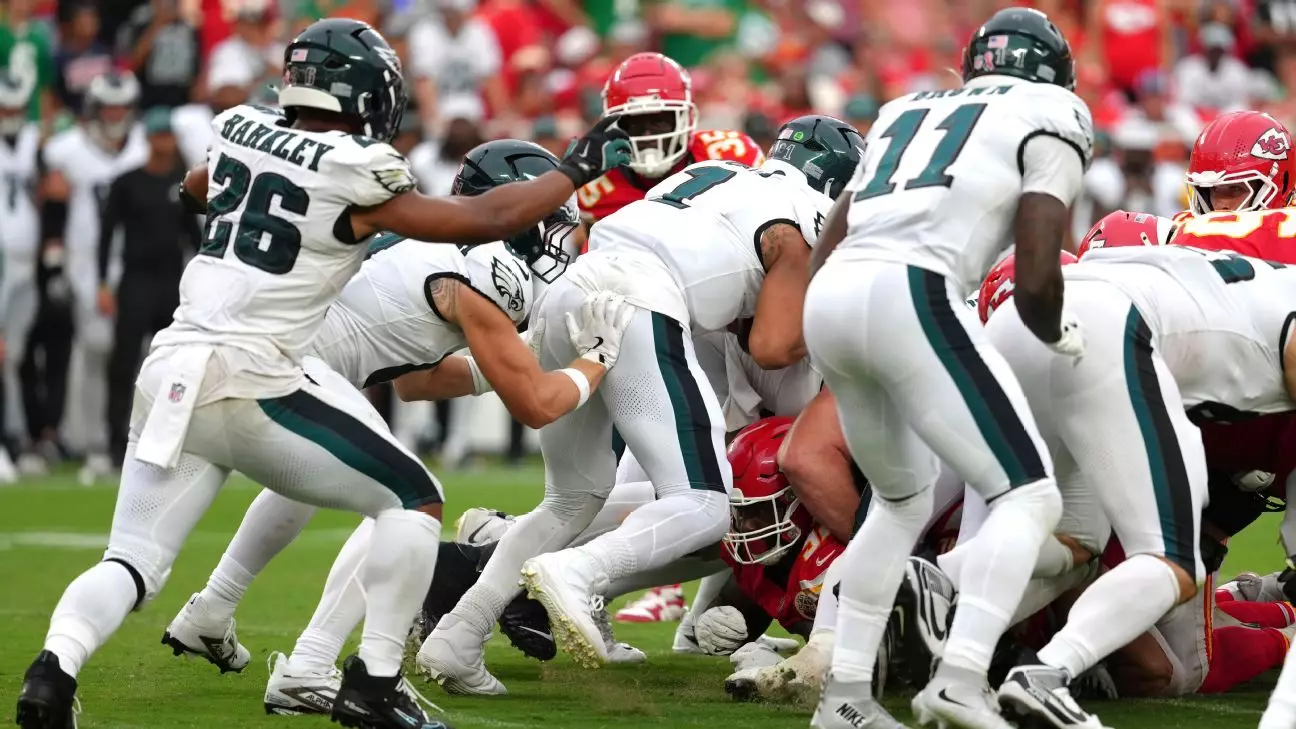The recent NFL controversy surrounding the Philadelphia Eagles’ execution of the “tush push” exposes a disturbing double standard that threatens the very core of fair competition. The league’s decision to instruct officials to call the play “tight” and the implication that the Eagles should have been flagged for a potential false start reveals a favoritism that casts a shadow over the integrity of the game. Such inconsistent enforcement not only emboldens certain teams but also undermines the trust of fans who crave fairness and transparency. When the league signals leniency toward one dominant team while scrutinizing others, it fosters suspicion that the sport is more about subjective officiating than objective rules.
The NFL’s messaging suggests an uncomfortable priority: protect certain plays and, by extension, certain teams, rather than uphold the principle of impartial officiating. This approach is especially concerning given the league’s failure to ban the “tush push” despite widespread debate and failed efforts to prohibit it. It’s difficult to ignore the optics when a play—used repeatedly with high success rates—remains legal yet is scrutinized by officials under the league’s instruction to call penalties “tight” and inconsistent. This inconsistency only fuels doubt that the game is played on merit, rather than manipulated by regulatory favoritism.
The Influence of Power and Politics on Officiating Practices
The NFL’s management of this situation appears to be more about politics than true enforcement. The fact that the league issued explicit directives to officials, emphasizing tight calls for a controversial play, indicates a level of influence beyond standard game management. Such directives may serve to appease critics or protect high-profile teams—like the Eagles—from scrutiny, while subtly penalizing others who attempt similar tactics.
This politicization of officiating not only distorts the rules but also tends to disproportionately impact teams with less influence or visibility. The Eagles’ strategic use of the “tush push”—a play with a remarkable success rate—is being scrutinized, despite its previous acceptance in the league. When officiating becomes a tool of favoritism, it erodes the principle of level playing field. It fosters a perception that certain teams receive preferential treatment, which can be deeply damaging to the sport’s credibility. Fans, players, and coaches alike deserve a game governed by consistent, unbiased rules—not dictated by league pressures or political games.
Implications for the Future of Fair Play
This controversy raises fundamental questions about the future of officiating in the NFL. Should certain plays be considered inherently unfair or illegal, or should the rules be interpreted objectively, regardless of who executes them? The league’s failure to ban the “tush push” despite significant debate suggests ambivalence, yet the subsequent punitive stance signals a desire to curb its perceived advantage. The question remains: Is the NFL selectively enforcing rules to maintain a competitive imbalance, or is it genuinely trying to uphold fairness?
The consistent success of the “tush push”—a move executed with remarkable efficiency by the Eagles—reflects a strategic innovation that other teams could emulate if not policed unfairly. Restricting such plays based on subjective officiating undermines strategic diversity and penalizes ingenuity. It appears the NFL is caught between preserving traditional rules and succumbing to political pressures that favor high-powered teams. This ongoing tug-of-war not only hampers the league’s credibility but fuels mistrust among its stakeholders. If the integrity of the game is to be preserved, officiating must be meticulously impartial, and league policies should aim at fairness rather than favoritism.
In a broader context, this controversy is emblematic of a sport struggling with its identity amidst increasing commercialization and political influence. The NFL’s handling of the “tush push” issue reflects the broader challenge: can a league rooted in competition and fairness resist the temptations of favoritism and subjective regulation? The answer, seemingly, remains elusive. If transparency and consistency are sacrificed for short-term image management, the sport risks alienating those who seek genuine sportsmanship and honest competition.


Leave a Reply